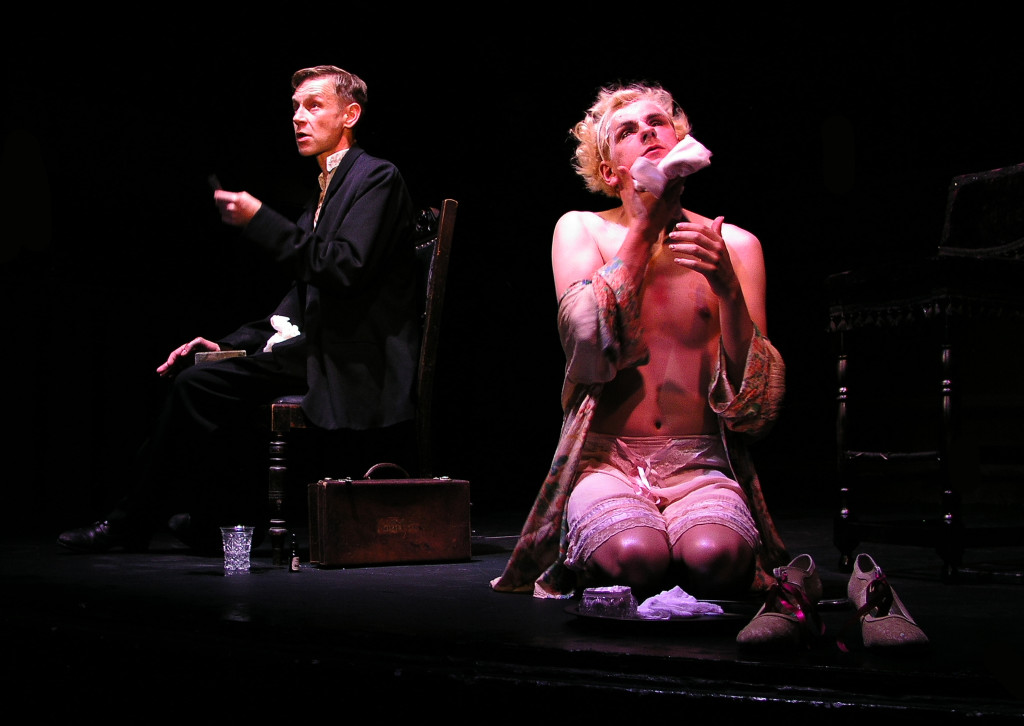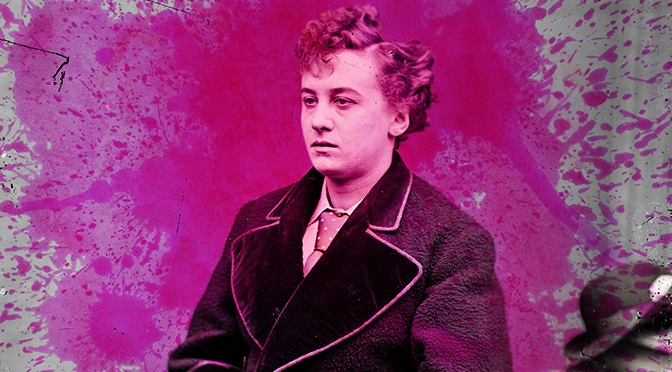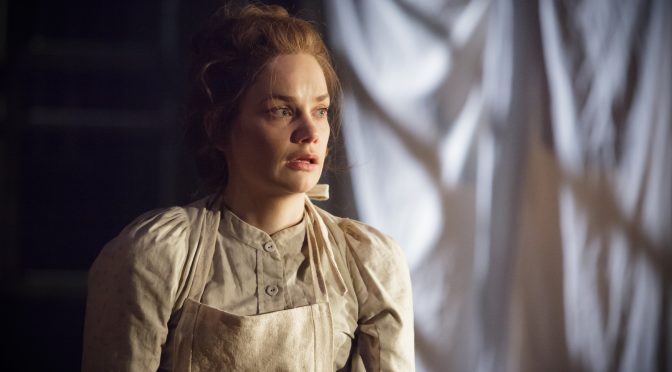The life of Ernest Boulton, the infamous Victorian cross-dressing entertainer, is a fertile source for fiction. Barbara Ewing’s book is recommended and a previous play, Fanny and Stella, made light work of this fascinating history. Neil Bartlett’s new piece is a more serious affair, deftly plumbing issues of gender identity and politics with sensitivity and intelligence.
Bartlett describes his play as a ‘one-man-show for two bodies’. Such succinctness is a boon for me as describing this bold and rich work isn’t easy. Following what’s going on is fine (read the free programme for the biography) but, while the older Ernest talks about the past and present, the younger version dresses for a night out as Stella and contemplates the future. It’s a deliberately fluid affair. Add direct addresses to the audience along with the characters advising one another and you have to have your wits about you.

To play directly alongside another performer who has the same role, just at a different age, must make the job peculiar for a performer. There are two brilliant actors here: Richard Cant and Oscar Batterham are remarkable for their focus and synchronicity. In attendance is a third, silent figure, played by David Carr, who serves (to my somewhat literal mind) as a memento mori: helping with make-up or aiding the frail Boulton awaiting a hospital appointment.
The piece’s construction demands further study. Scripts of plays Stella performed in are used. Interviews were conducted with transpersons today and some of these “found their way into Stella’s mouth”. The aim is to show a character on his/her own terms. Boulton’s potential as a pioneering transperson isn’t essential – it’s transformation per se that is the focus.
The various roles that Boulton enacted, literally on stage or as a sex worker, for example, enforce the theme of fluidity. As such, Bartlett’s play is radically political, his independent thinking inspirational. Yet the overriding theme is when the writing really takes off and we see Stella as a meditation on life and death. With its reflections on the passing of time, and how this transforms us all, this play is full of good, old-fashioned wisdom.
Until 18 June 2016
Part of the LIFT Festival 2016
Production photograph by Dom Agius. Artwork ©Fred Spalding, reproduced by courtesy of Essex Record Office


